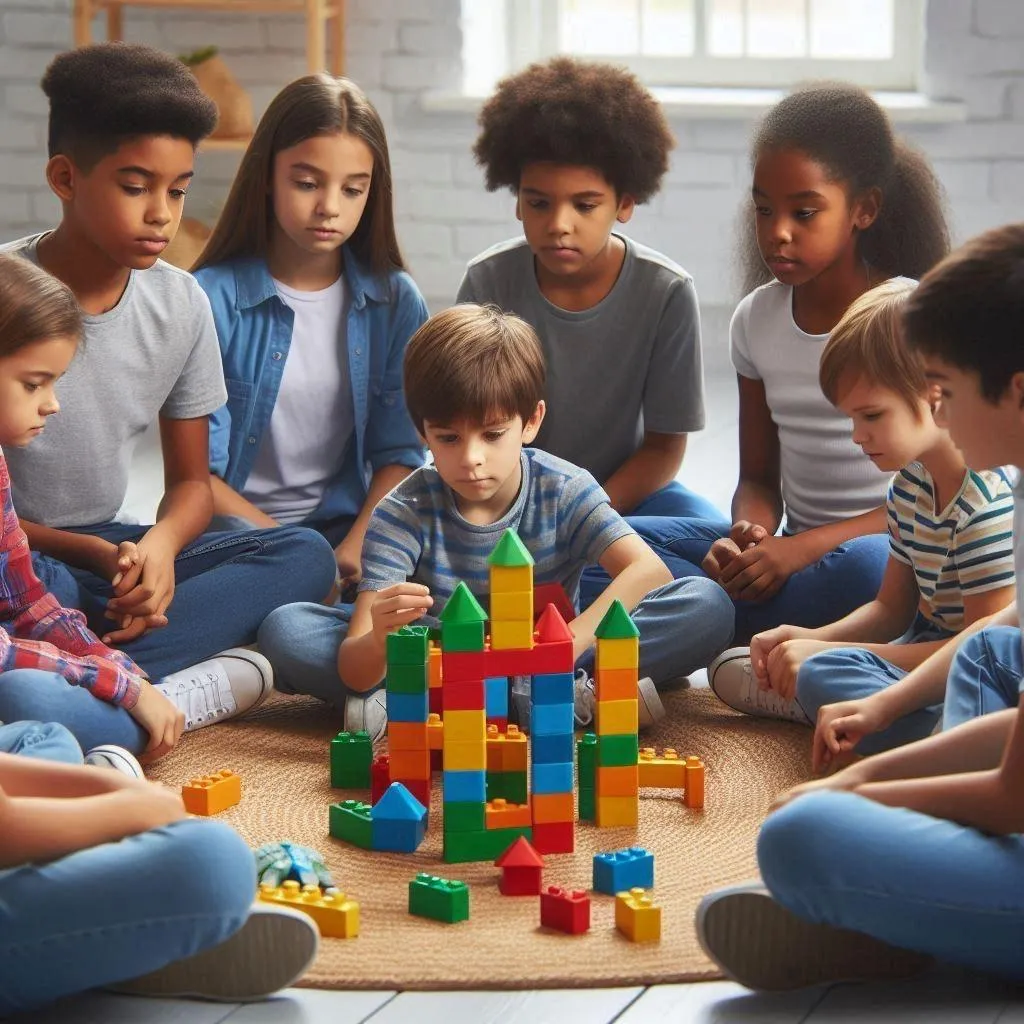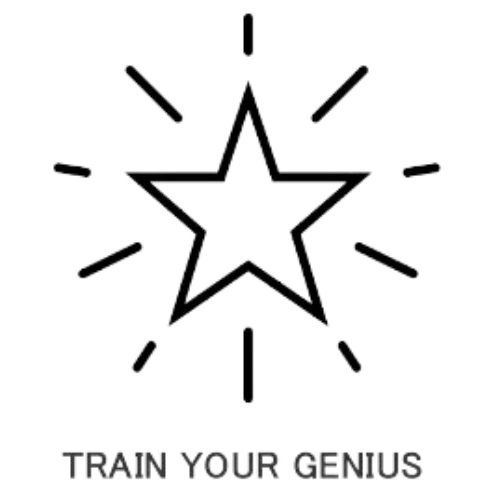AUTISM

Overview
With Autism, you have a choice of two worlds - Disability or Genius. We will show you both worlds. You get to choose which world you want to live in.
Autism Disability - Generally accepted view.
Autism, or Autism Spectrum Disorder (ASD), is a neurodevelopmental condition that affects how individuals perceive and interact with the world. It is characterized by challenges in social communication and interaction, as well as restricted, repetitive behaviors, interests, or activities.
Autism Spectrum Disorder (ASD) encompasses a wide range of characteristics, which can vary significantly from person to person. Here are some common characteristics:
Social Communication Challenges:
Difficulty with Social Interactions: Struggling to understand social cues, such as facial expressions, body language, and tone of voice.
Challenges in Conversations: Difficulty initiating or maintaining conversations, and sometimes preferring to talk about specific topics of interest.
Eye Contact: Avoiding or having limited eye contact during interactions.
Repetitive Behaviors and Routines:
Repetitive Movements: Engaging in repetitive actions like hand-flapping, rocking, or spinning.
Strict Routines: Preferring routines and becoming distressed with changes or disruptions.
Focused Interests: Having intense, specific interests, sometimes to the exclusion of other activities.
Sensory Sensitivities:
Sensory Overload: Being overly sensitive to sensory inputs such as loud noises, bright lights, or certain textures.
Sensory Seeking: Seeking out sensory experiences, like touching objects or watching moving lights.
Cognitive and Learning Differences: Varied Cognitive Abilities: Some individuals may have exceptional skills in areas like math, music, or art, while others may have learning disabilities.
Attention to Detail: Often noticing details that others might overlook.
Emotional and Behavioral Responses: Emotional Regulation:
Difficulty managing emotions, which can lead to meltdowns or shutdowns.
Anxiety and Stress: Higher levels of anxiety, especially in unfamiliar or overwhelming situations.
Each person with autism is unique, and their experiences and abilities can vary widely. Understanding and support tailored to their individual needs can greatly enhance their quality of life.
Autism Genius Gifts - Autism can bring unique strengths and perspectives that are often referred to as the “gifts of autism.” Here are some of the notable gifts:
Unique Strengths and Abilities:
Attention to Detail: Many autistic individuals have a remarkable ability to notice details that others might overlook. This can be particularly valuable in fields like data analysis, quality control, and research.
Strong Memory: Some people with autism have exceptional memory skills, especially for facts, dates, and detailed information.
Honesty and Integrity: Autistic individuals often value honesty and can be very straightforward, which can be refreshing and valuable in personal and professional relationships.
Deep Focus and Passion: When interested in a topic, autistic individuals can develop deep expertise and knowledge, often becoming specialists in their areas of interest.
Creative and Innovative Thinking:
Unique Perspectives: Autistic individuals can offer fresh and innovative perspectives, seeing problems and solutions in ways that others might not.
Creativity: Many people with autism have strong creative abilities, excelling in areas like art, music, and writing.
Contributions to Society:
Advocacy and Awareness: Autistic individuals and their families often become strong advocates for acceptance and understanding, contributing to greater societal awareness and inclusion.
Technological and Scientific Contributions: Many individuals with autism have made significant contributions to technology, science, and other fields due to their unique skills and perspectives.
Personal Growth and Relationships:
Empathy and Compassion: While social interactions can be challenging, many autistic individuals have deep empathy and compassion, especially for those who are marginalized or misunderstood.Lifelong Learning: The journey of understanding and supporting an autistic individual can lead to personal growth and a deeper understanding of human diversity for their families and communities.
These gifts highlight the diverse and valuable contributions that autistic individuals can make to society. Embracing and supporting these strengths can lead to a more inclusive and enriched world.
Challenges
Autism Spectrum Disorder (ASD) presents a variety of challenges that can affect different aspects of life. Here are some common challenges faced by individuals with autism:
Social Interaction Difficulties:
Understanding Social Cues: Difficulty interpreting facial expressions, body language, and tone of voice, which can make social interactions challenging.
Forming Relationships: Struggles with making and maintaining friendships due to differences in social communication.
Communication Differences:
Language Impairments: Some individuals may be nonverbal or have limited speech, while others might have difficulty with conversational skills.
Expressing Needs: Challenges in expressing wants and needs clearly, which can lead to frustration.
Sensory Sensitivities:
Sensory Overload: Heightened sensitivity to sensory inputs like loud noises, bright lights, or certain textures, which can be overwhelming.
Sensory Seeking: Seeking out specific sensory experiences, which can sometimes be disruptive.
Behavioral and Emotional Regulation:
Repetitive Behaviors: Engaging in repetitive actions or routines, which can be comforting but may also limit flexibility.
Emotional Regulation: Difficulty managing emotions, leading to meltdowns or shutdowns in stressful situations.
Cognitive and Learning Differences:
Executive Functioning: Challenges with planning, organizing, and completing tasks, which can affect daily living and academic performance.
Attention and Focus: Difficulty maintaining attention on tasks that are not of interest, while hyper-focusing on preferred activities.
Additional Health Concerns:
Co-occurring Conditions: Higher prevalence of conditions like anxiety, depression, ADHD, and epilepsy among individuals with autism.
Understanding these challenges can help in providing better support and accommodations for individuals with autism. Tailored interventions and therapies can significantly improve their quality of life.
Diagnosis
Diagnosing Autism Spectrum Disorder (ASD) involves several steps and typically relies on a combination of developmental history, behavioral observations, and standardized criteria. Here’s an overview of the process:
Developmental Screening:
Regular Checkups: Pediatricians often screen for developmental delays during routine checkups. If there are concerns, they may refer the child to a specialist.
Comprehensive Diagnostic Evaluation:
Specialist Evaluation: Specialists such as child psychologists, psychiatrists, neurologists, or developmental pediatricians conduct a thorough evaluation.
Behavioral Observations: The specialist observes the child’s behavior and interactions in various settings.
Parental Input: Parents or caregivers provide detailed descriptions of the child’s developmental history and behavior.
Diagnostic Criteria: DSM-5 Criteria: The American Psychiatric Association’s Diagnostic and Statistical Manual of Mental Disorders, Fifth Edition (DSM-5), provides standardized criteria for diagnosing ASD. This includes persistent deficits in social communication and interaction, along with restricted, repetitive patterns of behavior.
Additional Assessments:
Developmental and Cognitive Testing: These tests help assess the child’s cognitive abilities and developmental level.
Medical Tests: While there is no medical test for autism, tests may be conducted to rule out other conditions.
Early Diagnosis: Age of Diagnosis: Autism can often be reliably diagnosed by age 2, though some individuals may not be diagnosed until later in childhood or even adulthood. Early diagnosis and intervention are crucial for providing the necessary support and therapies to help individuals with autism reach their full potential. Early diagnosis and intervention are crucial for preventing emotional wounding, and lifelong struggle.
Getting Started
Various strategies can help individuals manage autism.
Treatment for Autism Spectrum Disorder (ASD) is highly individualized and focuses on improving the quality of life by addressing specific challenges and enhancing strengths. Here are some common treatment approaches:
Behavioral and Communication Therapies:
Applied Behavior Analysis (ABA): This therapy uses techniques and principles to bring about meaningful and positive changes in behavior. It is widely used and has strong evidence supporting its effectiveness.
Speech and Language Therapy: Helps improve communication skills, including speech, understanding, and use of language.
Occupational Therapy: Focuses on developing daily living skills, such as dressing, eating, and interacting with others1.
Educational Interventions:
Structured Educational Programs: Highly structured and individualized educational programs can help children with autism learn and thrive in school settings.
Social-Relational Approaches:
Social Skills Training: Helps individuals learn how to interact more effectively with others, including understanding social cues and developing conversation skills1.
Medical and Pharmacological Treatments:
Medications: While there is no medication to treat autism itself, certain medications can help manage symptoms like anxiety, depression, or hyperactivity.
Complementary and Alternative Treatments:
Dietary Approaches: Some families explore dietary changes or supplements, although these should be discussed with a healthcare provider to ensure they are safe and effective.
Family Support and Training:
Family Therapy: Provides support and education to families, helping them understand and manage the challenges associated with autism.
Developmental Approaches:
Developmental Therapies: Focus on improving specific developmental skills, such as language or motor skills, often in combination with behavioral approaches.
Community and Support Services:
Support Groups: Connecting with other families and individuals with autism can provide valuable support and resources.
Early intervention and a tailored approach to treatment can significantly improve outcomes for individuals with autism. It’s important to work with healthcare professionals to develop a comprehensive treatment plan that meets the unique needs of the individual.
RESOURCES
Disclosure:
Some are affiliate links, which means, I might earn income. At no additional cost to you. I am an Amazon Associate, and earn from Amazon qualifying purchases. Your support is greatly appreciated!
SITE USERS ACKNOWLEDGE: THIS SITE DOES NOT OFFER ANY MEDICAL, LEGAL, PSYCHOLOGICAL, THERAPEUTIC, RELIGIOUS, OR OTHER PROFESSIONAL ADVICE TO USERS. PLEASE SEEK THE ADVICE OF COUNSELING PROFESSIONALS (Physicians, Therapists, Clergy, Qualified Business Advisors, Lawyers, Accountants, etc) as appropriate, regarding the evaluation of any specific information, opinons, advice, or other content.
THIS SITE AND ALL CONTENT AND SERVICES ARE PROVIDED FOR INFORMATION PURPOSES ONLY AND ALL CONTENT AND SERVICES PROVIDED THROUGH IT ARE PROVIDED "AS IS" WITH NO WARRANTIES WHATSOEVER FOR INFORMATION, ADVICE, SERVICES OR GOODS RECEIVED THROUGH OR LINKS PROVIDED IN THE SITE.
Resource: Neurodiversity Call with Felicia Nagamatsu
Autism as a Genius Gift
A view pioneered by Ron Davis. The Davis Method Programs
Ron Davis Autism Foundation
Book: (Genius Gift) Uniquely Human: Updated and Expanded: A Different Way of Seeing Autism - Barry M. Prizant PhD and Tom Fields-Meyer
Book: Unmasking Autism: Discovering the New Faces of Neurodiversity - Devon Price PhD
More Resources Coming
© 2026 Train Your Genius
